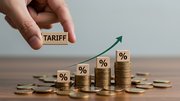Article
Amazon's Fire Phone: Will it succeed?
The sprawling online retailer has finally unveiled its smartphone. But is the company too late to a game that is well underway?

June 30, 2014 by James Bickers — Editor, Networld Alliance
Earlier this month, Amazon announced its first-ever smartphone, the Fire Phone, with much fanfare. While the Dynamic Perspective feature got a lot of attention, there are other things about this phone that could possibly make it disruptive for retailers — notably its Firefly technology, which can be used to identify not only songs and movies but also products in the real world, and then purchase them right away. In other words, it could take showrooming to a whole new level.
"It even has to make phone calls," Jeff Bezos told an interviewer from the New York Times, his tongue presumably planted firmly in cheek.
But isn't the market already flooded with smartphones? Will there be enough people that want one badly enough to give up their iPhones and Galaxies?
"I think it's very feasible for the Amazon smart phone to give Apple and Samsung some competition," said Matt Witt, EVP, director of digital integration for Tris3ct, an ad agency in Chicago. "To penetrate the market initially, they have to be very competitive on price, which they've done with their tablet devices, the Kindle and the Kindle Fire HD. But the longer term opportunity is for Amazon to fold in other services, such as the scanning capabilities that come with Amazon Prime's Wand and their entertainment streaming services. Making those native to the phone will help drive business in other channels for Amazon."
That "it even has to make phone calls" comment points to one thing that is fundamentally different about the Fire: Its use as a phone could be seen as its secondary function, while its primary function is to act as another direct pipeline into the Amazon products and services ecosystem.
"The big thing here is that Amazon's Fire phone is the first phone geared towards consumerism as opposed to communications," said Mary Weinstein, director of content for CPC Strategy. "Amazon's Fire phone is focused on helping users make mobile purchases — something which e-commerce sites and apps have increasingly been aware of, but which mobile carriers have not addressed."
Fred Thompson, leader of the retail practice at LoyaltyOne, sees the phone as part of Amazon"s ongoing efforts to make it as easy as possible to buy from them. He praised the retailer's integration of its Prime membership, as well as the one free year of the service that will ship with each phone, calling it "a great tactical use of a loyalty program."
But not everyone agrees that this is a home run for the retailer. Norman Roberts, vice president and creative director for FRCH Design Worldwide, thinks the Amazon brand isn't strong enough to engender the type of passion people have for, say, their iPhones.
"A key part of Apple's success, and in a way Samsung"s as the 'anti-Apple,' has to do with personal connection with consumers. In Apple's case, a very strong aspirational relationship. As successful as Amazon is, i don't believe consumers have any emotional connection to the brand. It plays a large role in peoples lives but it's a functional role, like USPS. I think this is why Amazon has also struggled with its fashion initiative."
Even so, Roberts noted that given the sheer enormity of Amazon's business, "even achieving a very small portion of the market may meet their goals for success."
"Amazon has made a bold entrance into mobile, but launching a phone is one thing, gaining market share is a whole different game," said Christophe Delacroix, Managing Director of Bluebird Global. "I think retailers should watch very closely at consumers' reaction to the Amazon Fire; when Amazon enters a market it has traditionally achieved fast and wide-spread growth. We'll have to wait and see how well Amazon will fair against the Apple and Android giants currently dominating the mobile space but in my opinion we will see Amazon do very well from this move.
"One thing is clear though: If you're not selling products on an Amazon-owned property, you won't be benefiting from the Fire," he added.
 ChatGPT
ChatGPT Grok
Grok Perplexity
Perplexity Claude
Claude




